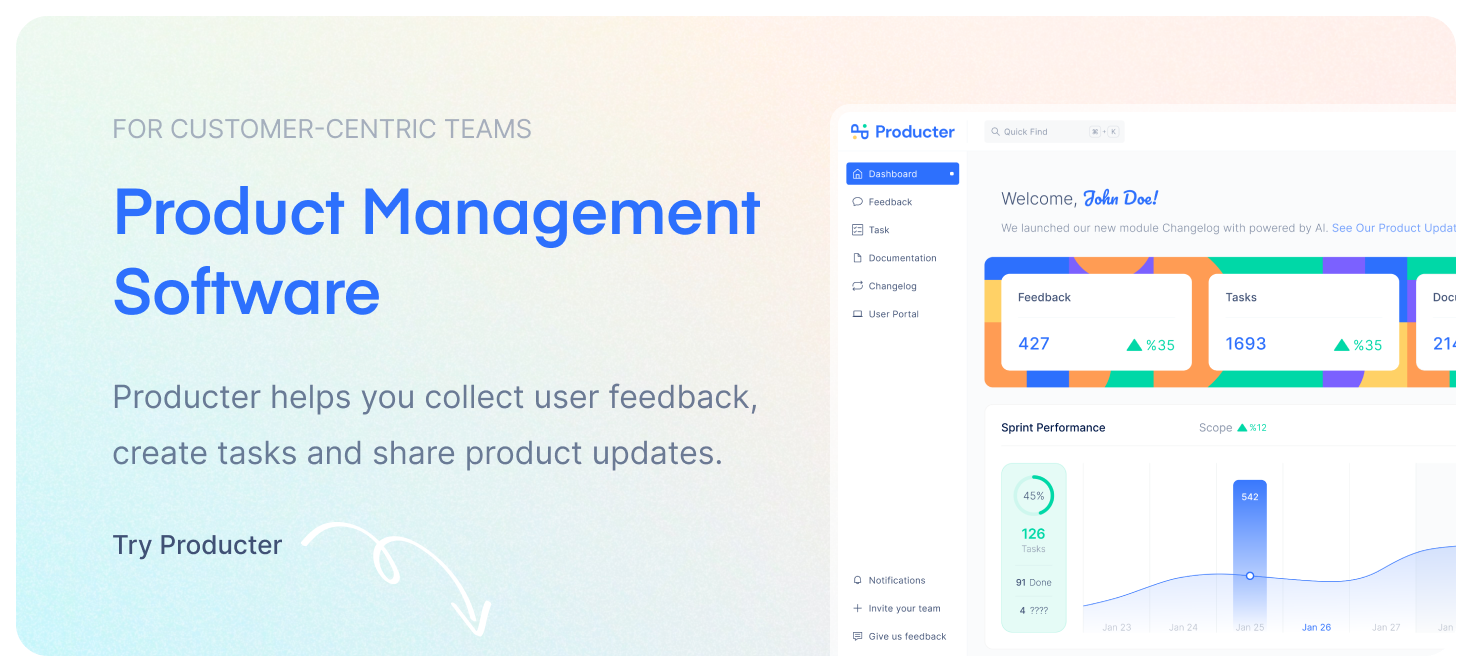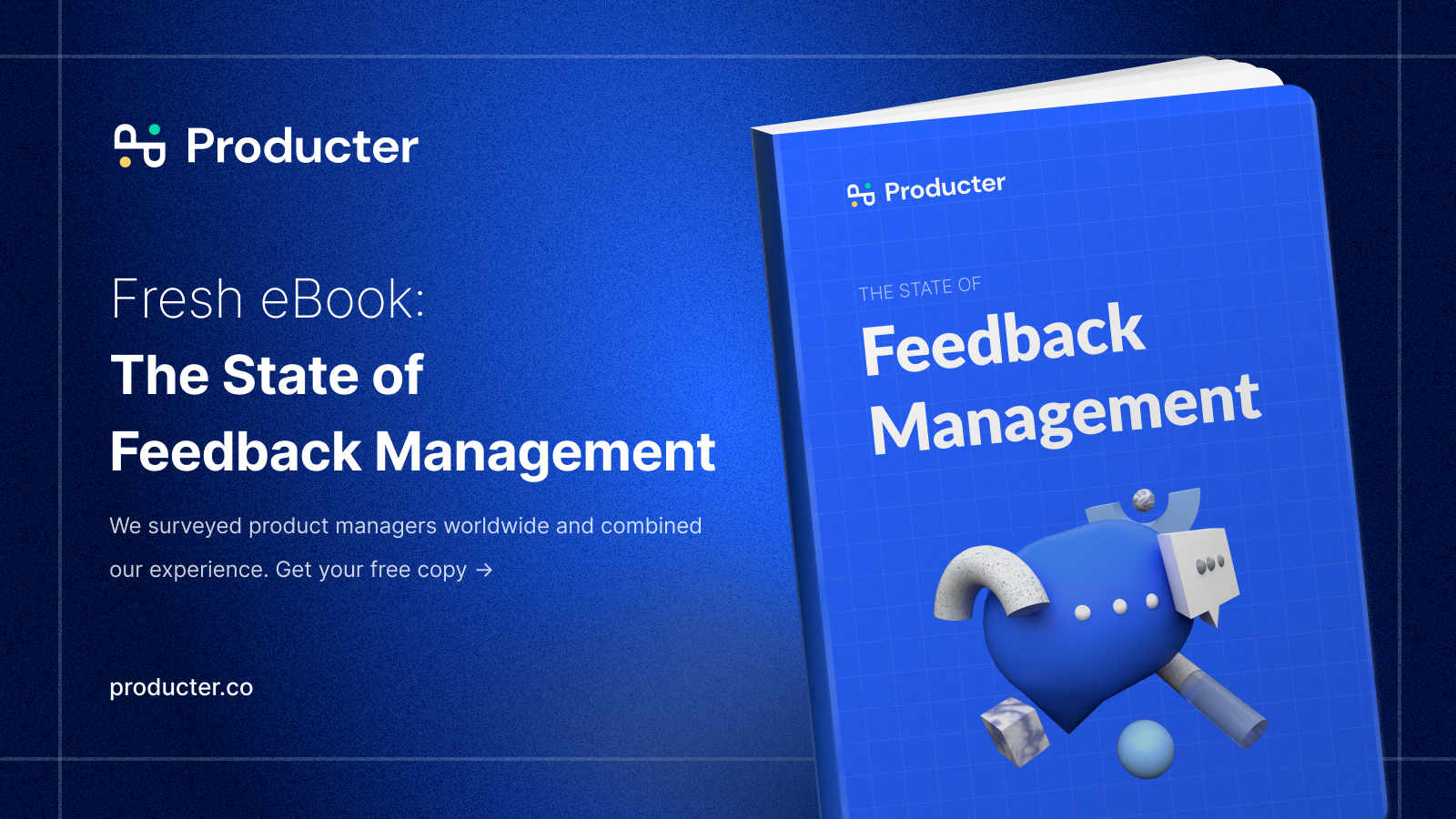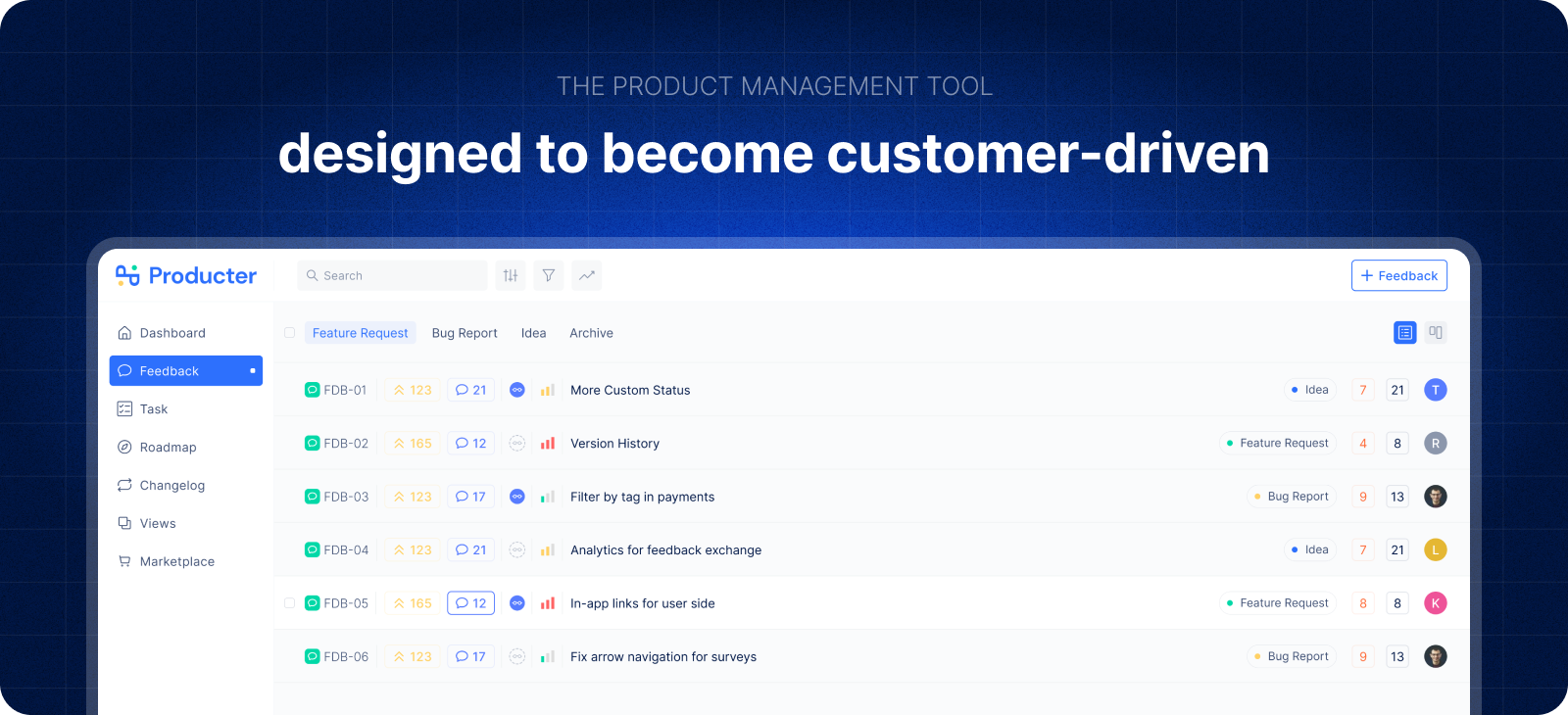Product managers, customer care teams, analysts, marketers, and pretty much everyone else in your company may all benefit from consumer input. Despite this, a recent study discovered that 42% of businesses don't poll their clients or gather feedback.
The various customer feedback categories, methods for gathering helpful feedback, and analyses of the categories that are most crucial to your company's success are covered in this guide.

What exactly is customer feedback?
Customer feedback is information that your company gets directly from customers about their experiences with and levels of satisfaction with your product or service. A number of methods can be used to collect customer feedback, such as e-mail, social media, or the feedback management modules of product management tools such as Producter.
Why is customer feedback so crucial?
The improvement of the customer experience, future product development, and customer satisfaction levels all benefit from consumer input. A thorough study gives a business a better understanding of what it needs to do and enhance in order to boost customer loyalty and decrease customer support issues.
Get our free eBook to dive deeper into feedback management.

The six guidelines for effective customer feedback collection
1. It matters what kind of customer provides the feedback
Do you give all the advice people give you the same amount of thought? Unlikely. The friends whose opinions you'll trust the most are probably the ones you've known the longest. The person you just spoke to on a bus and who strongly advised you on what to do with your life? They won't likely hold as much significance for you.
In a professional setting, the customer's history with your company affects how much weight you give their opinions. Long-term customers have a plethora of experience with your product, making their feedback very useful. Do you have any recent clients that have been use your product heavily over the past six months? They'll probably have a ton of useful feedback. Do you have clients who spend considerably more than others? You might want to consider it as well.
2. Whether solicited or not, customer input is important
Unprompted comments merit extra consideration. Here is a major justification. The most crucial things you need to hear from customers can be those that aren't on your radar and that you're absolutely unaware of. Unsolicited comments or open-ended inquiries are more likely to bring up these off-the-wall concerns than, say, a quick survey with multiple choice options. There's a reason why physicians ask you if you have any more concerns at the conclusion of your session. It frequently prompts the patient to discuss their most pressing problem.
3. The motives of the customer are important
Remember that if someone has much expertise, they are typically driven to offer unsolicited comments. That explains why the "wonderful" and "appalling" ends of the restaurant rating range tend to cluster together on Yelp. People believe that recommending a fantastic restaurant or cautioning people away from a bad restaurant will increase their social capital.
But was your dinner that night really just average? What's the point of writing a review, anyway? You probably won't bother. It's hardly a particularly captivating tale, is it? An essential motivational aspect is illustrated by the restaurant example of client feedback.
This kind of restaurant review data typically follows a J-curve distribution. A curve that initially descends and then rises to a higher point than the beginning is referred to as having a "J" form.
You can anticipate that there would be a similar pattern when it comes to the client feedback you get about your company. When they are really delighted or unhappy with your goods, your customers are more compelled to let you know. This does not imply that buyers simply adore or despise your product, though. You likely have a sizable middle segment of consumers who find your product to be "OK." These clients often don't say anything.
4. Volume is crucial
You should pay attention if, in the past month, 80% of customer feedback has indicated that your main product's "upgrade" has destroyed people's workflow. It concerns how much feedback there is overall on a particular issue compared to other topics. Additionally, it will shield you against "fre-cently" bias, which is the tendency for individuals to give more weight to recent or common events.
5. Repetition is important
On the premise that "Oh, we've heard that for years," user problems are frequently ignored. Perhaps you're intending to take care of that problem for good in a significant overhaul next year. More likely, though, is that everyone has become tired of hearing this plea because it has been made so often that it has become trite and sounds monotonous.
In either case, it's important to pay attention to this kind of input, especially if it raises concerns about the product's quality, defects, or the difficulty using it to perform a key function. It's a sign that you haven't mastered the fundamentals, and you should take action to correct it as soon as possible.
6. The stakes are important
Because of how serious the customer's issue is, certain comments is worth paying attention to. This is feedback with a high stakes. It's possible that you released software with a security flaw or that your product unintentionally jeopardized customer privacy. Create a system that notifies you when you receive feedback from customers that is of this rare but critical nature so you can act immediately.
Producter is a product management tool designed to become customer-driven.
It helps you collect feedback, manage tasks, sharing product updates, creating product docs, and tracking roadmap.






